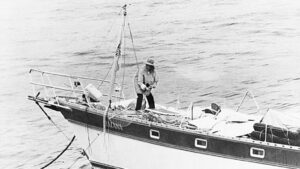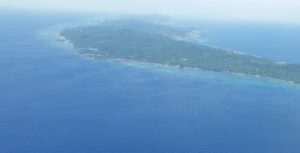The 72-year-old woman has lived her whole life in the Siberian wilderness, after her parents fled Stalin’s oppression in 1936.
Known as the world’s loneliest woman, Agafia Lykova was 35 years old when she first saw a human being outside of her own family. Since 1988, she has lived alone, continuing to survive off the land. This week marked a monumental change in her lifestyle, as Lykova moved into a new home.
Lykova’s story began in 1936 when her father Karp, his wife, and their two children fled the Stalin era. They carried only essential items with them and built a tiny, bitterly cold, windowless shack more than 2,000m up a mountainside and 250km from the nearest town. Here, the devoted Old Believers lived a 16th-century life. Karp’s wife even bore two more children in the wild. Lykova was one of them.
In 1978, a team of geologists accidentally discovered the family. Despite their instant fame, they didn’t want to change their way of living. Eventually, all but Lykova perished from the brutality of their isolation.
In recent years, as Lykova has aged, she’s received welfare checks a few times a year. The regional government periodically checks that she is in good health and delivers essential items donated by people around Russia, including buckwheat and rice and fabric for mending clothes. Lykova also been given a satellite phone with which she can call the ranger at the nearby Khakassky Nature Reserve if she needs help.
“We all take extreme care when visiting Lykova, virus or no virus,” said one of the visiting workers. “She is like a Mowgli who has never come across modern diseases. We know how disciplined and cautious we must be to ensure that she stays safe.”
During one of these checks, it became evident that Lykova’s home was deteriorating. There was a public appeal for help, and oligarch Oleg Deripaska stepped in. Deripaska (worth an estimated $2.9 billion dollars) is the founder of Basic Element, a Russian industrial group with interests in aluminum, energy, construction, and agriculture. He funded the new cabin, which allows Lykova to live out her remaining years in the only lifestyle she knows.

Agafia Lykova’s new cabin. Photo: The Siberian Times
Construction began in December, and the cabin was finished earlier this week. It has a lovely wood interior, a veranda, and lots of natural light coming through four windows. A small, wood stove provides a cooking surface and warmth from the Siberian winters. The cabin also has a sheltered space for storing firewood. Lykova requested the simple, one-story design.
Since Lykova lives in such a remote area with limited accessibility, the house was built elsewhere. Then the planks were numbered, the home dismantled, and re-assembled in her corner of the wilderness.

Agafia Lykov’s home features natural lighting, some simple benches, and a small wood stove.
Lykova says she likes the new house, and baked bread and served homemade drinks to thank those who helped construct it.
Despite dozens of volunteers wishing to live close to her, Lykova prefers to have only her cousin living relatively close by.
“She is not an easy person to live with, and many people who wish to help her don’t understand her character,” said one of the welfare workers. “She is a child of nature. She needs somebody who would listen to her and obey her orders.”






